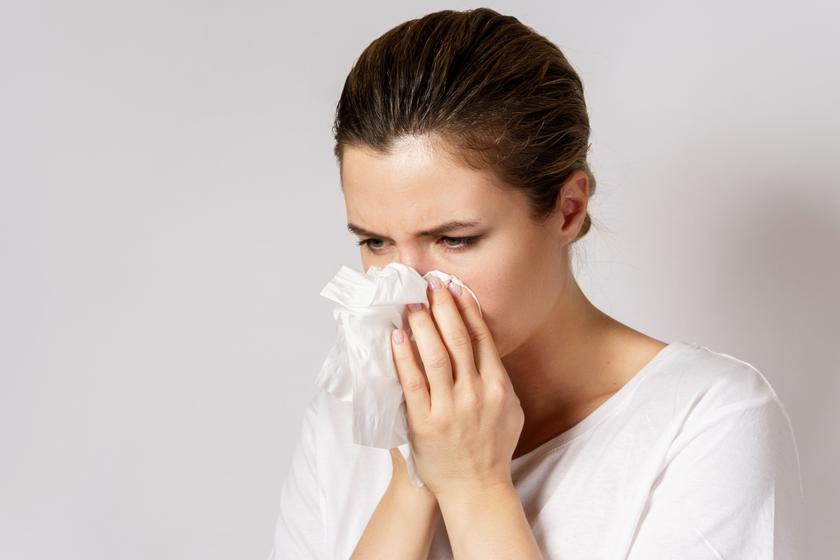Allergies are getting more common. Playing in the dirt could help.

If you are sneezing more than ever this summer, you’re not alone. In 2021, according to the Asthma and Allergy Foundation of America, approximately 81 million Americans were diagnosed with allergic rhinitis — also known as hay fever or seasonal allergies. That’s more than a quarter of the adults and nearly 20% of all children in the U.S. And those numbers are rising — while symptoms are getting worse, allergists say.
In fact, allergic reactions in general, from asthma and eczema to food sensitivities, are worsening in the U.S. and other parts of the world, experts say. The U.S. Centers for Disease Control & Prevention reports that the prevalence of food allergies in children increased by 50% between 1997 and 2011. And by 2018, nearly 42 million Americans, or 13% of the population, had been diagnosed with asthma in their lifetime—an increase of 43% from 9% in 1999, the American Lung Association reports.
To find out what’s behind the increase, and what we can do about it, we spoke to Memorial Hermann-affiliated allergist Duyen Nguyen, DO.
Q: Do we know what’s causing the rise in allergies?
Dr. Nguyen: It’s a complicated question. It’s true, we are seeing a rise in allergies. There are a number of theories about why that is. The ‘hygiene hypothesis’ is one of the leading theories. That theory is that when it’s too clean, kids aren’t exposed to the germs that help train the immune system. Studies have found that children in the U.S. who live on farms have a decreased risk of allergies, maybe because of their exposure to a variety of microbes. Even having a dog or cat in the house in a child’s first year of life is linked with a lower risk of allergies and asthma.
For most Americans, hygiene and handwashing have become a bigger part of our lives in the past few years. We all started using a lot of hand sanitizer during the pandemic. In the long term, it’s possible that could lead to more allergies — but it can also help keep you from getting COVID-19, and that’s very important. We just make the best decisions we can. Some people have talked about the benefits of showering less often, but that’s not something I recommend to my patients. You want to shower every day. It’s Houston. It’s humid. But there are ways you can be less vigilant about cleanliness. If my kids drop food on the ground, I say go ahead, just eat it — it’s fine.
We also see lower rates of allergies in other countries where living conditions are different. I grew up in Vietnam, and food allergies were very rare. But pollution was so bad that I had sinus infections a lot. I also had malaria as a kid. You got sick all the time, but not many people had allergies. That’s interesting because our immune system has two arms: the type 1 response helps you fight infection, while the type 2 response reacts to allergens. So, it’s possible that if the type 1 arm of your immune system is always active, you might never have a chance to activate the type 2 arm.
Q: What about early exposure to potential allergens? Should parents introduce their kids to common allergens, like peanuts, at a young age?
Dr. Nguyen: Definitely, yes. You want to expose children to different foods early. Expose them to dogs and cats right after they’re born. It will be too late if you expose them at four or five years old. That’s been a big change in our thinking. In 2015, the Learning Early About Peanut Allergy trial showed that we were wrong to tell parents to avoid all possible allergens until two years of age. The trial showed that, for infants at high risk for peanut allergy, eating peanut foods early and regularly reduced the risk of peanut allergy by more than 80% compared to peanut avoidance. But early exposure is not perfect. For kids at high risk — for example, they have siblings with food allergies — we’ll skin test them for allergies at four months old, and if they aren’t allergic, then we’ll start giving them small amounts of the foods and they won’t develop allergies. If you don’t expose them early and regularly, they will. But there are some kids you test at four months and they’re already allergic. Where does that come from? It’s their genetic makeup. So, I have to tell those parents, I’m sorry, they’re already allergic, you have to keep them away from peanuts.
Q: Why should we take allergies seriously? How do they impact the lives of people who have them?
Dr. Nguyen: Food allergies are extremely serious. They can be fatal. But they can also cause tremendous burdens for families. Some kids are allergic to six or seven foods — what can they eat? It’s so difficult when they travel or socialize.
Asthma can be deadly, too, and even allergic rhinitis can seriously affect your quality of life. As an allergist, I see the patients with severe symptoms. If you’re having minor symptoms, you typically go to your family doctor. For my patients, the symptoms of seasonal allergies are so severe that it affects their sleep and sometimes their work. They have fatigue, headaches — it can be really debilitating.
Q: How can people manage their allergies once they have them?
Dr. Nguyen: The major tool we have is avoidance: minimizing your exposure to allergens. So, if you’re allergic to dust mites, for example, you have to stay away from dust mites. Don’t use ceiling fans; the less you disturb the room environment, the better.
For people allergic to pollens, you want to take antihistamines in the morning, before you go outside. For severe seasonal allergies, allergy shots are our best tool — and to some degree drops, although shots are more effective.
Q: Once you have allergies, is there any chance they’d ever lessen or go away?
Dr. Nguyen: It depends. For some food allergies, there’s a chance that children will outgrow them. But environmental allergies, such as pollen and pet allergies, tend to get worse over time. If you’re allergic to tree pollen, then every year when the pollen returns, your body makes more antibodies and releases more histamines, making your symptoms worse.

















